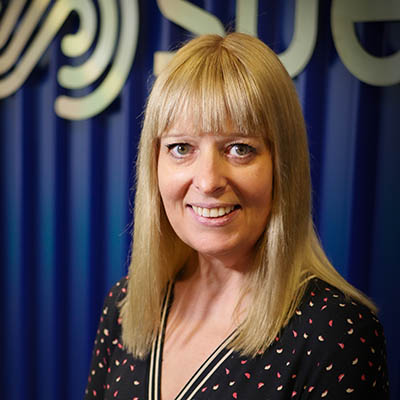Making neurodivergent sense of the world

Among the more positive stories in the media recently have been reports on public figures who’ve shared how they’d been diagnosed with various syndromes on the neurodiverse spectrum. The TV presenter Melanie Sykes, for example, described her autism diagnosis at 51 as ‘life-changing’: she was finally able to make sense of her inexplicable struggles.
When last month we devoted one of our weekly Wellness for All Webinars to the subject of dyslexia, the response by one colleague was no less dramatic and touching. Having hidden their neurodiversity for years – we were told that – afterwards, they just sat and cried with relief, having heard their everyday struggles openly discussed and the syndrome embraced by their employer.
More recently we returned to this topic of neurodiversity with a webinar co-presented by Colin Foley from the ADHD Foundation. The Neurodiversity Charity says that one in five people in the UK live with ADHD, autism, dyslexia, dyspraxia, dyscalculia, or Tourette’s syndrome. It is working to create “a paradigm shift in health, education and employment in order to reduce dependency, empower, and enable the neurodiverse population to achieve their potential and improve life opportunities”.
In the case of autism, Melanie Sykes is far from alone. In 1998 just over 3,000 people in England were diagnosed as autistic. By 2018 the figure had risen beyond 65,000, with the steepest rises in females and adults.
That growing group is itself becoming more diverse as the diagnostic criteria have changed, awareness grows, and antiquated stigmas fade so that more people come forward for screening and/or openly acknowledge their diagnosis.
In a previous post I’ve described the inclusion and diversity journey of SUEZ recycling and recovery UK. Recognising and supporting our current and future employees who are neurodivergent is no less important a step on that journey as ensuring that differences in ethnicity, gender, cultural or sexual orientation are no barrier to opportunity and inclusion in our workplaces.
Also, our own people had already identified inclusion and diversity as a priority when they developed our Wellness for All charter. Recognising and supporting colleagues on the neurodiverse spectrum is central to several of its eight themes – from mental wellbeing to emotional, and social to the work environment.
These webinars recognise those priorities and also help raise awareness of neurodiversity. As a responsible employer we raise awareness and support our managers to make sure they are alive to the signs of these syndromes, able to provide a professional and empathetic response, and optimise their contribution to our business. Colleagues are also less likely to suffer in silence if they know that other people in their team are disposed to understand and help them, if necessary.
After the webinar on dyslexia, another colleague asked anonymously in the Q&A session for advice on who to approach about their secret problem. As our expert presenter Dee Caunt of the Dyslexia Association explained, employees who’ve coped in the office by taking work home to finish at night or asking their partners to proofread written drafts for them, may not feel comfortable broaching the issue with their line manager.
Peer-to-peer support can be very valuable, she noted, and we know that’s true more generally, and not just in these circumstances. Our expanding Inclusion and Diversity Network is there to complement the formal channels we provide via our HR team and Wellbeing and Inclusion Manager who is also ready to support and advise any employee.
Of course, neurodiversity is not just a concern in the workplace, especially as many of these conditions are genetic. Our people worry about their children or other family members too. Our recent webinars shared advice on where they should turn for a diagnosis, the waiting times for children’s assessments, and how best to go about getting them the support they need at school.
The dyslexia experts have welcomed the advances in recognition and support for affected children over several decades, but specialist instruction in neurodivergent syndromes is not a mandatory component of teachers’ training. Most teachers should be able to spot the signs, but they rely heavily on their SENCO (Special Educational Needs Coordinator) colleagues. They, and schools’ resources, are often over-stretched.
As an employer, we can’t cure society’s ills, but we should try to do the right thing by our own people, for their sakes as well as the business. Just as society and the nation are the poorer when sections of the community are excluded, so is any business that fails to recognise that employees’ performance or wellbeing are needlessly undermined, or people are hindered, for whatever reason, from achieving their potential.
The different strengths that neurodivergent people bring to their teams is now better understood. Whether it’s visualisation, novel approaches to problem solving, creativity or the ability to focus on finer detail, brains that work in ways that are not neurotypical can confer advantages that we should appreciate. As Dee noted during our October webinar, GCHQ recruits dyslexics and other neurodivergent people, not least because the secret services value their enhanced capability to discern changes in patterns.
Or to give a globally significant example, it was a young autistic schoolgirl’s laser-like focus on how pollution and the changing climate were devastating the natural world that turned Greta Thunberg into the modern phenomenon and ‘force of (and for) nature’ that she now is.
Passion for the environment is a core SUEZ value that our people share. As a company striving to help society and businesses manage material resources in sustainable ways, we need diversity of talent and thinking to help us find the solutions the UK Plc needs to make the transition to a zero-carbon, circular economy. And help resolve our planet’s existential struggles.